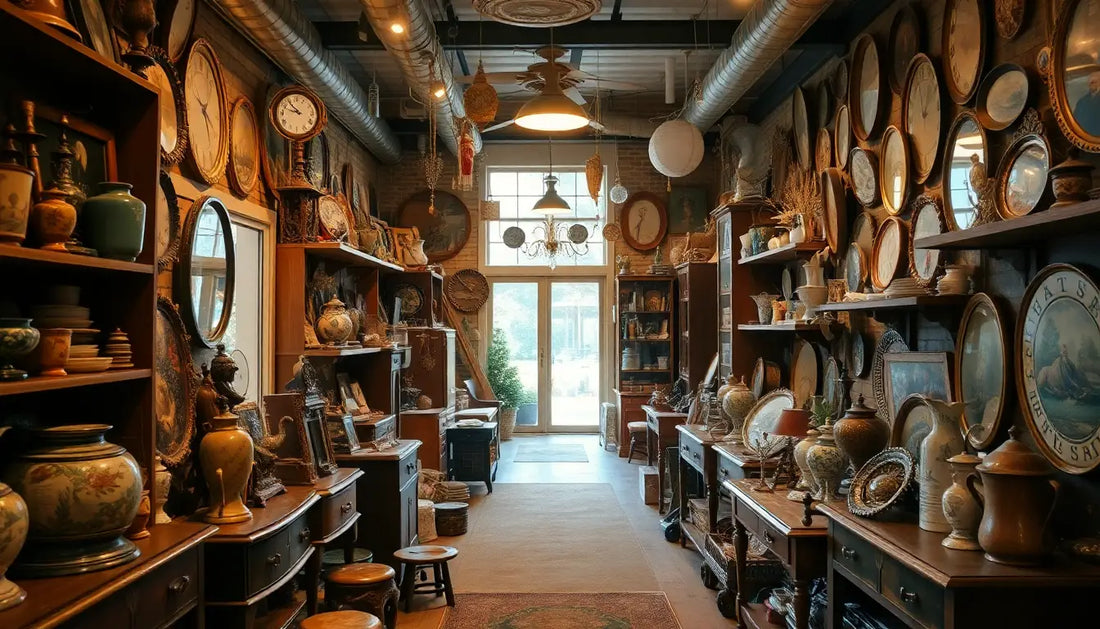
Antique Shops: How to Choose the Right One for You and Discover Unique Treasures
Introduction to Antique Shops
The world of antiques is a fascinating place where the past and present collide. Every piece of antique has a story to tell, and the search for unique treasures can be an unforgettable experience. Whether you are a seasoned collector or a curious newcomer, choosing the right shop is essential to finding the perfect piece to enhance your home or collection. In this article, we will explore how to navigate the world of antiques and discover the secrets to choosing what is right for you.
1. Research and Planning
Before venturing into an antique shop, it is important to do preliminary research. Here are some key steps to follow:
- Define your interests: Take some time to think about what type of antiques you are interested in. You may be drawn to antique furniture, decorative objects, paintings, jewelry, or even rare books. Having a clear idea of your interests will help you focus your search.
- Check online reviews: Today, thanks to the Internet, you have access to a wealth of information. Check reviews of antique stores in your area on Google, Yelp, or social media. The experiences of other customers can give you an idea of the quality and reliability of the store.
- Make a list of stores to visit: Once you have identified your interests and promising stores, create a list. Consider grouping stores by location to optimize your visit.
2. What to Look for in an Antiques Shop
When you walk into an antique shop, there are several key things to consider to ensure you make a good purchase:
- Authenticity: Make sure the pieces are authentic. Ask the seller about the provenance of the item and check for certificates of authenticity. Checking for authenticity is essential, especially if you are looking for valuable pieces.
- Item Condition: Carefully evaluate the overall condition of each piece. Inspect for any signs of wear, repairs, or damage. An item in good condition is worth more and may be a better investment in the long run.
- Price: Don't hesitate to compare prices. Do online research to get an idea of the market value of the items you're interested in. Remember that the price can reflect not only the value of the item but also the reputation of the store.
3. Negotiation Approach
Negotiating the price is an essential part of buying from an antiques store. Here are some practical tips:
- Do your research: Knowing the market value will give you an edge when negotiating. If you have found information on the prices of similar items, you can use that to your advantage.
- Show interest: If you show interest in an item, the seller may be more inclined to offer you a discount. Ask about the item and show how interested you are.
- Don't rush: Take your time to think about the purchase. If a price seems too high, don't hesitate to make a lower offer. Sometimes, sellers are willing to lower their price to close a sale.
4. Discover Unique Treasures
One of the joys of visiting antique shops is the chance to discover unique items that you would never find in a traditional store. Here are some tips for finding hidden treasures:
- Items with history: Look for pieces that have an interesting history or come from particular places. Items with a fascinating past can add value to your purchase and enrich your experience.
- Local Artists: Support local artists and artisans by purchasing vintage art or furniture. Not only can these pieces be unique, but they often carry a sense of community and local history.
- Visit Markets and Fairs: In addition to stores, consider visiting flea markets, antique fairs, and shows. These events can provide unique opportunities to find rare and interesting pieces.
5. Maintain and Care for Your Antiques
Once you have found and purchased your antique, it is essential to take care of it to preserve its value. Here are some maintenance tips:
- Proper cleaning: Use specific products for cleaning vintage objects. Avoid aggressive detergents that can damage the material.
- Controlled Environment Storage: Keep your pieces in temperature and humidity controlled environments to prevent damage. Exposure to extreme conditions can compromise their integrity.
- Insurance: If your antiques are of significant value, consider insuring them. This will protect you in the event of theft or damage.
6. Conclusion
Visiting antique stores is more than just shopping; it’s a journey of discovery into stories, cultures, and passions. With the right tools and knowledge, you can find unique treasures that will enrich your life and home. Remember to do your research, evaluate carefully, and most importantly, have fun in the process! Every visit to an antique store is an opportunity to discover something new and fascinating. Don’t be afraid to explore and be surprised by what the past has to offer!







